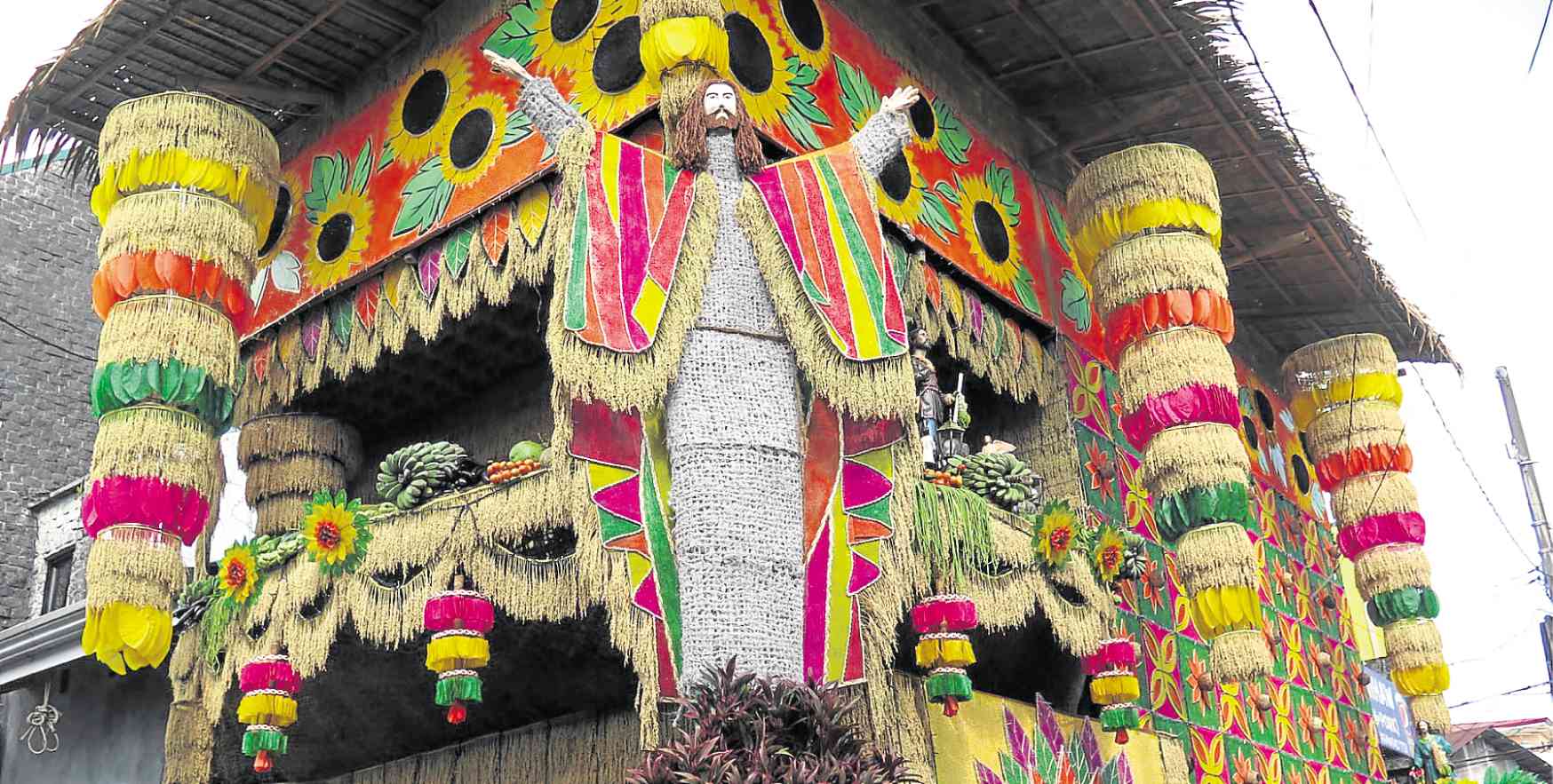
CROWD DRAWER A house in the agricultural town of Lucban in Quezon province has become a crowd drawer for its display of fresh fruits and vegetables, rice stalks and rice wafer, called “kiping,” in this year’s Pahiyas Festival. —DELFIN T. MALLARI JR.
LUCBAN, QUEZON — The increasing prices of decor pieces and vegetables, and the drop in the price of copra have reduced the luster of this agricultural town’s Pahiyas Festival this year.
Pahiyas, a thanksgiving for a bountiful harvest, is known for its exquisite display of colorful “kiping” (rice-based wafers arranged in chandelier-style artwork), fresh harvest and other native products in every house along the procession route in the town. The crowd-drawing festival has prompted the Department of Tourism to put Lucban on the list of must-see destinations, owing to its rich culture and history.
The popular displays, however, were absent this year. Unlike past celebrations held every May 15, as farmers’ pay tribute to their patron saint, San Isidro de Labrador, this year’s staging of the festival was subdued.
Some residents were content in decorating their houses with a few pieces of kiping and assorted vegetables.
“Don’t blame them. The cost of kiping is P10 apiece, compared to last year’s P7. Most locals don’t have the budget. Life is really hard these days,” resident Cesar Racelis told the Inquirer.
To decorate the façade of a small house, the owner needs more than a hundred of kiping in different colors. A two-story house will require at least 1,000 pieces.
A coconut farm owner blamed the low price of copra for the modest decorations and austere celebration.
“Its value is worthless nowadays; copra production is a losing venture. Even the prices of our vegetables are [unstable],” said Tomas Nadera, a landowner and farmer.
Copra price averages P12 to P15 a kilogram, down from P40 a kg last year. A piece of coconut is sold for P2 to P3, down from P10.
Disappointed
Some tourists could not hide their disappointment.
“I was surprised. What I am expecting to see are the vibrant displays of farm produce, multicolored kiping and other ornaments. Yes, the houses were still decorated but the usual fiesta look was lacking,” said Joy Polintan, a “balikbayan” from Canada.
Residents also noticed that fewer visitors went to Lucban this year for the Pahiyas.
Jezreel Yao, Lucban tourism officer, said: “[The festival date falling on a] weekday and the just concluded elections are important factors behind the [fewer] number of tourists.”
Yao also agreed with observations that the high cost of living had affected the quality of the traditional displays. —DELFIN T. MALLARI JR.